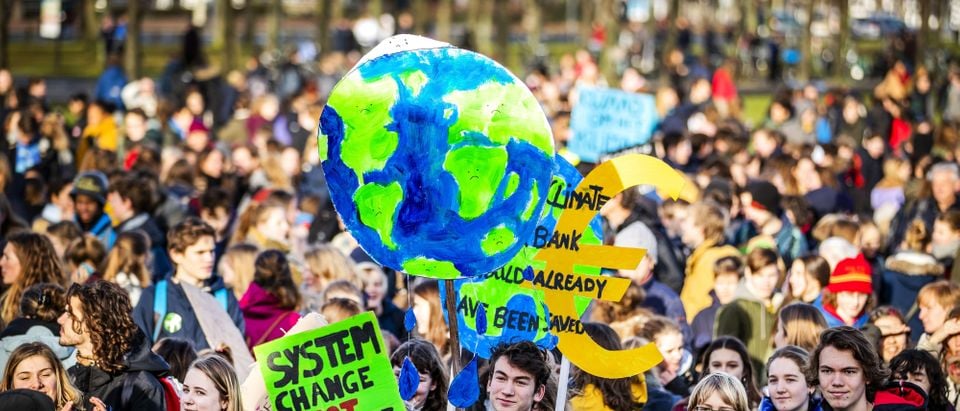Warmer winters and earlier springs could mean the end of numerous species of life on earth — including the great tit bird species, a new study showed.
“When the climate changes, the interactions between different species changes too,” Emily Simmonds, an associate professor at Norwegian University of Science and Technology’s Department of Biology said. Her remarks were reported by the Independent in a piece published Tuesday about a study with NTNU and Oxford University. (RELATED: Joaquin Phoenix Says He ‘Flew Plane Out’ To DC To Join ‘Fight’ Against Climate Change)
The great tit and other birds can adapt to changes in their food supply as a result of climate change, but they run into trouble if the changes happen too quickly according to research by @NTNU & @UniofOxford https://t.co/CBrBjZSCHt pic.twitter.com/vDVqUIiRvf
— CJS News (@CountrysideNews) November 10, 2020
“If changes happen too fast, species can become extinct,” she added. “Given conditions with big greenhouse gas emissions, the great tits won’t always be able to keep up with the changes in the larvae supply.” (RELATED: Harrison Ford Tells Climate Change Crowd: ‘Stop Electing Leaders Who Don’t Believe In Science’)
The piece went on to note that, if the current climate pattern of earlier springs continues, the great tit would likely be completely gone by 2100 because they depend on larvae for food when their chicks are newly hatched.
“This could happen even if great tits also modify their behaviour more quickly in a rapidly changing environment,” Simmonds explained. “The larvae might be changing even faster than the great tits.”
“It could be that the apparent stability today is hiding a future collapse,” she added. “The reason is that we might reach a kind of threshold where the great tits aren’t keeping up. The rubber band gets stretched too far, you could say.”
But the professor went on state that the bird population “will be able to survive scenarios with lower or medium warming trends” and that was “good news.”
According to the report:
Other populations of birds are already being directly hit by the deadly impacts of the climate crisis – in the US state of New Mexico hundreds of thousands of birds have dropped dead, and reports of mass avian fatalities have also come from Colorado, Texas, Arizona and Nebraska.
Numerous migratory species have suffered due to natural events such as the wildfires and record heat waves in the United States.


